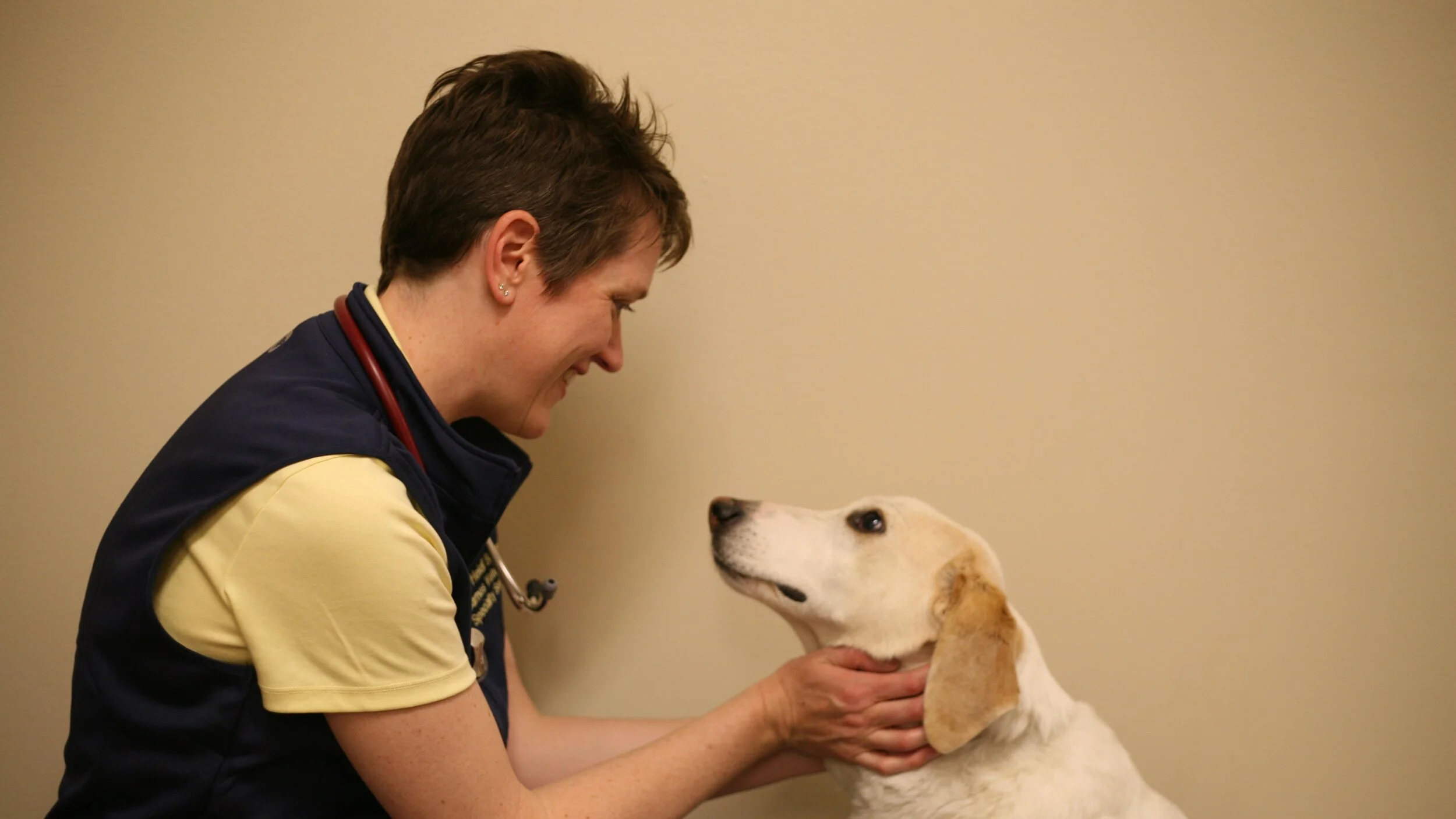Canine Meningitis...Encephalitis...Meningoencephalitis... oh bother...
Canine Meningitis...Encephalitis...Meningoencephalitis... oh bother...
Canine meningoencephalitis is a general term, used to collectively describe inflammation in the brain and meninges of dogs. Although infectious meningoencephalitis can occur, the majority of dogs have a non-infectious, inflammatory disease.
Remember the term GME? Well, that is only ONE type of non-infectious inflammatory meningoencephalitis! Note: to call it GME we need histopathology. Not surprisingly, many clients do not opt for brain biopsies so we cannot confirm if it is GME, or NME or NLE or another histologic subtype of inflammatory brain disease antemortem. That won't do!
IF I CANNOT CALL IT GME IN A LIVE PATIENT, WHAT DO I CALL IT?
We call the collection of non-infectious, inflammatory brain diseases Meningoencephalitis of Unknown Etiology (MUE). Or, if you're British it's MUA (aetiology). Or, sometimes its called MUO (origin). Shoot, we're back to alphabet soup again. 😒 When we settle on a term, I'll let you know, but for now the literature typically refers to non-infectious, inflammatory brain disease as MUE. (Not GME)
CLINICAL SIGNS
* Any age, breed or body condition. (cats too!)
* Chronic or acute progression of signs (I've diagnosed it in dogs with clinical signs for 6 months, and those with a 24 hour history of signs).
* Multifocal or focal neuroanatomic lesion localization.
* Unless the dog has SRMA (one form of non-infectious inflammatory brain disease), fever is NOT a common clinical sign.
DIAGNOSIS
MUE is a clinical diagnosis which must be supported by diagnostic investigation. Without diagnostic investigation the word presumptive is recommended, or simply include MUE in the listed differential diagnoses in the medical record.
* Magnetic resonance imaging (MRI) focused to the area of neuroanatomic lesion localization
* Cerebrospinal fluid (CSF) analysis
* Negative geographically specific infectious disease testing
We cannot diagnose MUE with blood work, or on neurologic examination alone. (Sorry)
Extra tidbit - GME is not caused by vaccination or population density according to a recently completed study!*
TREATMENT
Standard treatment is immunosuppressive glucocorticoid therapy (1 mg/kg twice daily prednisone or prednisone equivalent dose) because of the ease of administration for owners, good penetration through the blood brain barrier and comparatively low cost. A slow taper over months is recommended, however some animals require medication for life. If glucocorticoid therapy is intolerable to dog or owner, other protocols could be considered.
PROGNOSIS
Survival to 3 months is the most reliable predictor of long-term survival.
What do I tell clients? Start treatment, and repeat a CSF tap at 1 month. If the pet is doing well, CSF tap is normal or normalizing, keep going. If all is going well by 3 months, consider repeating another CSF tap and continue to monitor life-long for relapse of clinical signs. The prognosis is based on the old saying, " if the dog is doing well, it's likely to do well." Sigh...just a sign that we have a lot more work to do sorting out this disease.
As a small business, I sincerely appreciate your business and your willingness to continue to support mobile neurology. I am the only mobile veterinary neurologist in Wisconsin and Illinois and, I appreciate your support!
Stay Safe, and Happy December Everyone!
*Barnes Heller HL, Granick M, Pinkerton M, Keuler NS. Case-control study of risk factors for granulomatous meningoencephalomyelitis in dogs. JAVMA 2019:254(7):7-10.

